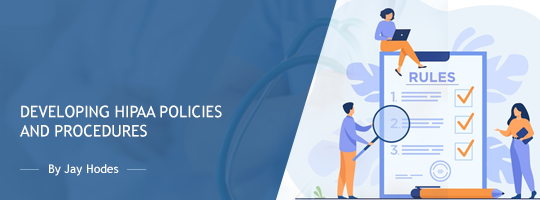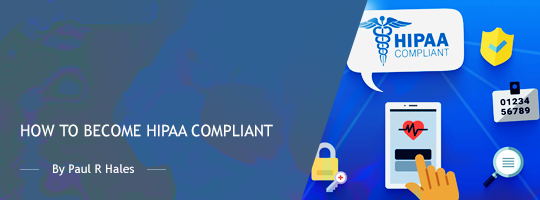- Email Us: info@webinarinstitute.com
Menu
Developing HIPAA Policies and Procedure + How To Become HIPAA Compliant – Recorded Webinar (Combo)
Recorded Webinar


For anyone tasked with managing a HIPAA compliance program, it is critical to have the comprehensive policies and procedures in place. Find out how to create policies and procedures or see if your current ones address all the required topics.
Attendees will leave the course clearly understanding of all the requirements for developing, maintaining, and modifying HIPAA policies and procedures. After completing this course, those assigned this task will have a clear understanding for what needs to be place when it comes HIPAA policies and procedures.

HIPAA Covered Entities and Business Associates of all types and sizes are at serious risk of health information breaches caused by aggressive criminal attacks and their own lack of attention to protective safeguards required by HIPAA. Admittedly the HIPAA regulations are difficult to read. They are written in legalistic language and arranged in confusing order with frequent obscure and even inaccurate internal references. However, while the number of health information breaches grows rapidly, the number of private class action lawsuits based on those breaches is growing much faster. And government enforcement is also on the rise, in part to deal with medical identity theft, the fastest growing and most lucrative type of identity theft in America today.
The HIPAA Rules are a blueprint to prevent health information breaches. And there is a secret to HIPAA compliance – HIPAA Rules are easy to follow step-by-step when you know the steps.
HIPAA compliance is a well-defined process to systematically identify and address risks to the privacy and security of protected health information (PHI). This webinar will explain the steps that make up that process using plain language and engaging diagrams.
This webinar demystifies HIPAA. It will give you a sound, basic framework to make your organization HIPAA compliant, protect the privacy and security of PHI you create, receive, maintain, and transmit – and reduce the risk of damage to your organization’s reputation, stability and financial well-being.
Health Care Providers
Health Plans
Business Associates
Third Party Health Plan Administrators
Compliance Committee Members – Board of Directors
Executive Staff
Venue: Recorded Webinar